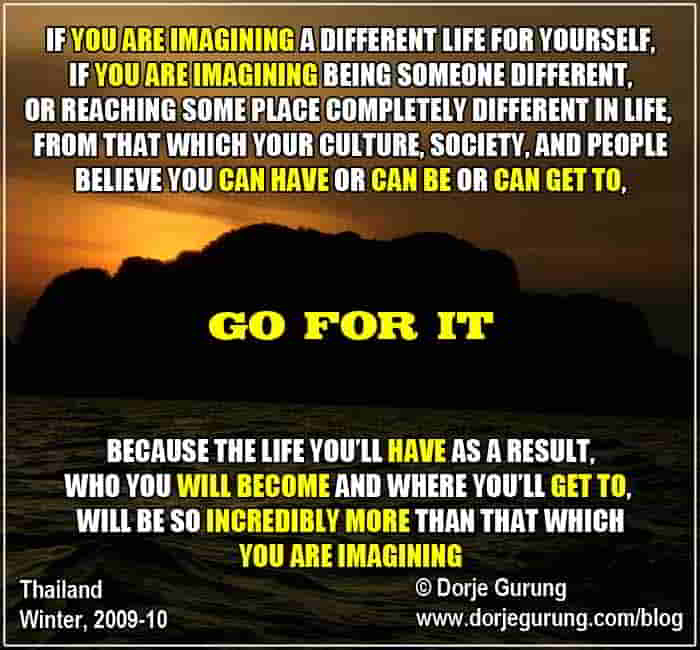
What and who I have become as a result of my international experiences — education, teaching, and traveling — have been way beyond anything I imagined when I was growing up in Nepal. (Recently, I have even wondered if I have gone too far, if you know what I mean.)
While doing everything I believed I needed to do in preparation for my return to Nepal ultimately — maintaining my ties to the country and people, learning about my Tibetan heritage and people, learning about development aid industry — of course, I constantly changed, grew, and evolved.
How I see myself, how I view the world, people of the world, my place in all that, my view on life, my views on different global and local issues and subjects etc. have all been a result of that long but slow and steady personal, professional, and intellectual growth and evolution.
In this fourth blog post in the series (click here for the first one, here for the second, and here for the third, which deals with the changes in my views of development aid industry), I’ll be sharing the details of that evolution and how who I had become was yet another reason behind my decision to turn down the job offer in February 2013 and to return home.
Who and what I could be and how far I could get to in life in Nepal were severely limited by my society simply because of the circumstances and context of my birth — into a low socio-economic background. Growing up, I was certain that were I to remain in the country, I would struggle to overcome our society’s perceptions and low expectations of the likes of me, as well as struggle to surmount our society’s structural barriers. I learned most of that at an early age, not unlike the little Dalit boy my friends and I met in the nineties on a short hike up a hill in Pokhara. I developed a strong urge to “escape”, to free myself of the constraints and limitations of the conservative and highly stratified Nepali society. Towards the end of my secondary schooling, having been an avid reader, I also wanted to learn about the world.
Imagining a different life for myself, imagining being someone different, and reaching some place completely different from that which my culture, society, and people believed I could have or could be or could get to, I had worked really hard throughout my academic career in Nepal and had done pretty well.
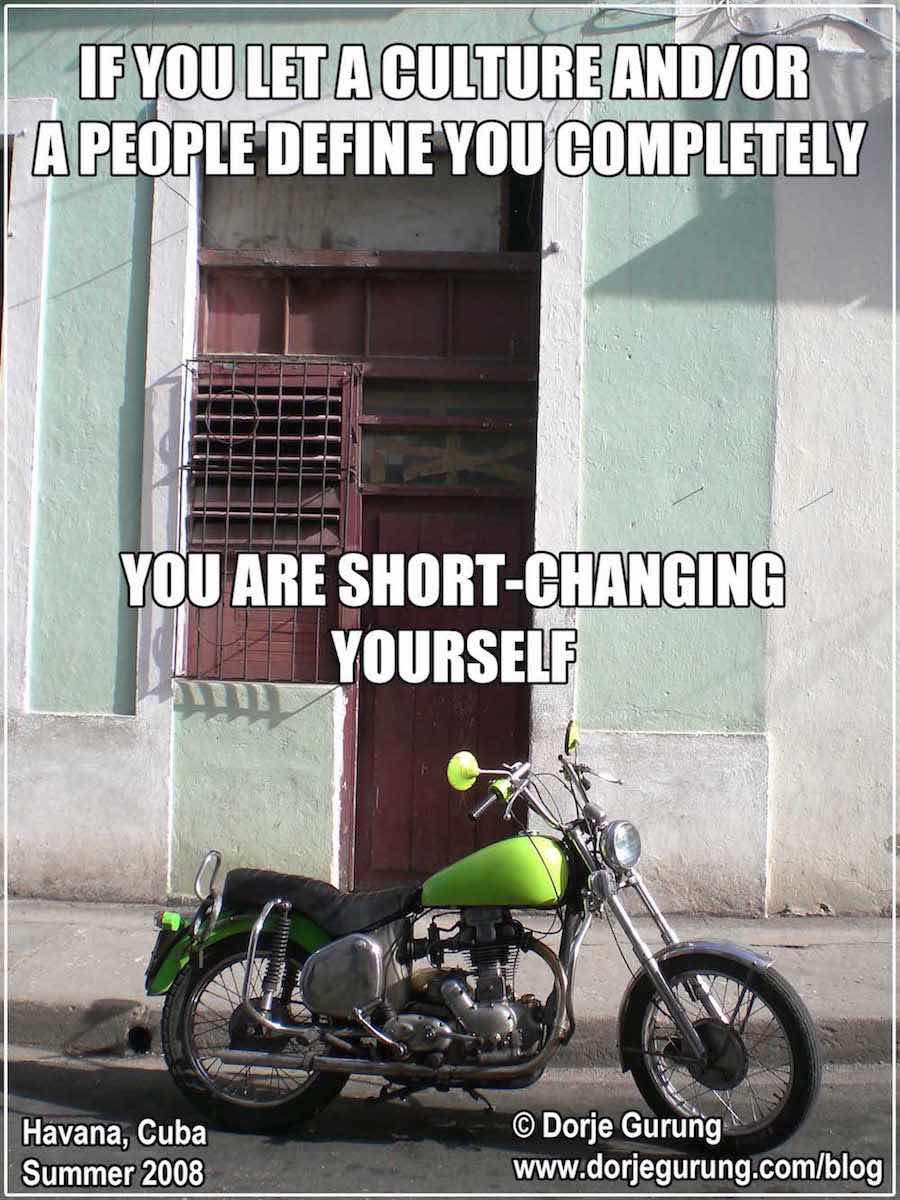
A scholarship to the the United World College of the Adriatic in Italy started it all. There, during my first two years in the West for the first time, among 200 other students from 65 different countries, naturally, I started learning a great deal about myself, the world, and the people on this planet etc. I asked myself some serious questions, such as “Who am I?”, “Why am I here?”, “Where am I going?”, and “What is this world and its people all about?”
Then and in the years that followed, I started engaging — and developing interests — in activities some that I would have likely not come across or even heard about had I never left Nepal. I went rock climbing. I went caving. I went skiing. I skied in the Swiss Alps, in Pennsylvania and New Mexico in the US, in Norway, and in the small country of Georgia. I camped out in a snow cave and hiked in the Norwegian wilderness on cross-country skis.
I trekked to altitudes as high as 5500 m (~17000 ft) in Nepal and scuba dived to a depth of 31 m in the Philippines, in addition to scuba diving in Australia and off the coast of Zanzibar. I camped out in a Yurt in winter in Colorado. I went on wild-life safaris in the small Royal Chitwan National Park in Nepal, in the awesome Ngorongoro Crater and the Serengeti Plain in Tanzania, in South Luwanga in Zambia, and in Liwonde National Park in Malawi. I visited some awesome national parks — such as the Grand Canyon, Canyonlands, and the Arches — and went on incredible road trips in the US! I went swimming with wild dolphins off the coast of Zanzibar etc. etc. etc.
I acquired a new favorite sport, ultimate frisbee, one that a vast majority of Nepalis probably have never even heard of! I got into Latin American dances (merengue, salsa etc.) and music, spending a whole summer in Cuba! I took Flamenco lessons in Oslo, Norway. I taught myself how to play the Didgeridoo, an Australian musical instrument that most Nepalis, again, have probably never even heard of.
Towards the end of my studies at Grinnell College in the US, I dreamt of traveling the world. I ended up living in countries as far up North as Norway and as far South as Australia. I taught in countries as far West as the US and in territories as far East as Hong Kong. By February 2013 when I had decided to return to Nepal, I had set foot on more than three dozen countries in all!
I lived with people from 12 different countries and moved around so much that I had 30 residential addresses in 25 years. I acquired some not-so useful skills and attitudes, behaviors, outlooks (click here for some more), most of which are quite different from most Nepalis. I operated mostly in the fourth language I had learned growing up, English, which, after my first year in the US, I have been speaking with a North-American accent. I created and kept a bucket list etc. etc. etc.
For some time, I had thought of — and viewed — myself as an ordinary Tibetan-Buddhist (Bhote) Nepali, who just happened to have had an extraordinary educational opportunity in Nepal which in turn had led to more extraordinary opportunities abroad.
My imagining a different life for myself, my imagining being someone different, my imagining reaching some “place” completely different in life, from that which Nepali culture, society, and people had told me I could have or could be or could get to, and striving for it all, had led me to becoming — and getting to places in life — so so incredibly more than that which I had ever imagined (including a twelve days in a Qatari jail which admittedly happened AFTER I turned down the job offer).
My personal evolution led, for example, to my calling myself a humanist rather than the Tibetan-Buddhist I had been born as. I thought of and viewed myself as a human being first. And then, I decided or realized, I was everything else — a Nepali, an ethnic Tibetan, a Buddhist etc. though not necessarily in that order. To me there is no “us” and “them” having lost the strong sense of patriotism I had grown up with in Nepal. Social status too — whether based on caste or skin color or gender or the size of ones wallet — holds little meaning.
Completely in line with that, I viewed everyone as my equal and came to believe that everyone — regardless of their age, class, sex, gender, sexuality, race, caste, nationality, religious affiliation etc. — deserved my respect. I did my best to accord that respect to everyone i came across and engaged with.
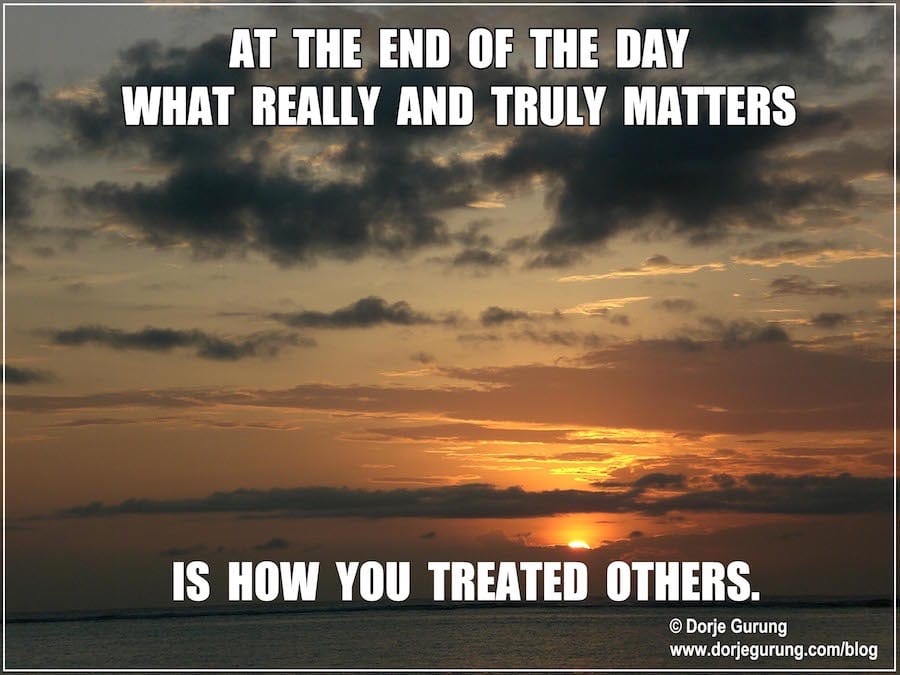
While it’s possible that I could have grown up to hold such views had I never left Nepal, I doubt I would have learned to act accordingly in my daily life. Living and working abroad among people of different nationality, culture, religion, sexuality, age etc. however gave me the opportunity to do so. The social worlds I was a part of were nowhere near as segregated — along gender lines, along age for example — and rigid as those in Nepal.
I evolved into an independent thinker. I had become my own person, something I had vaguely thought about wanting to be as a young student in Nepal. I had become an outspoken person, speaking out about many of the social issues we faced in Nepal and elsewhere, believing in a much more peaceful, equitable, and just societies. The first time I publicly started drawing attention to social issues was as a radio show host at Kantipur FM in Kathmandu as early as in 1998.
Having lived in a number of different countries, each life different in some way at least from the rest, and traveled in so many more, for example, I can imagine being born as someone else under a completely different set of circumstance, and living a completely different kind of life from the one I am living now. In other words, I am able to put myself in the shoes of people from all sorts of cultural, racial, ethnic, national, class, gender, sexual backgrounds etc. and empathize with them. Birth in a certain context and set of circumstances is just random, to begin with. Furthermore, when you get down to the fundamentals, humans are more alike than different. The most important intangible needs of pretty much every human being, for example, are to be valued, to live a life of dignity, and to be loved.
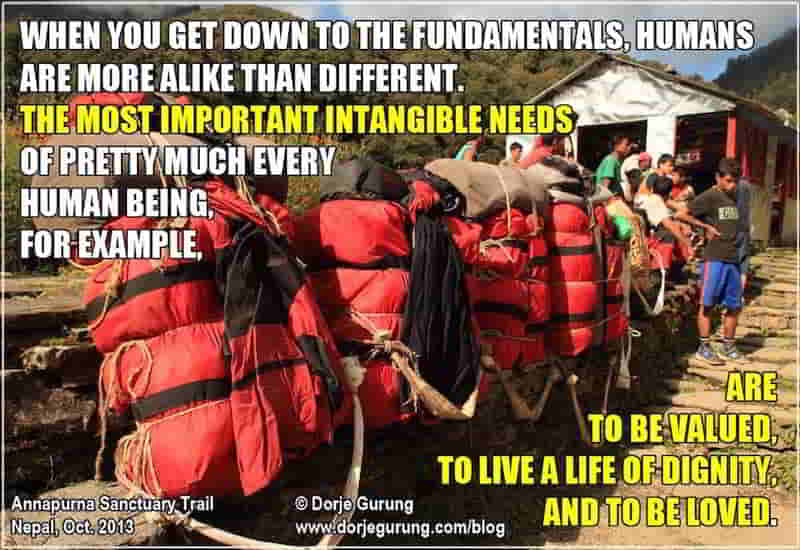
All that because travel and life experiences in cultures and countries different from a person’s own shapes and molds one in incredible ways, in ways one cannot imagine, in ways nothing else really can.
Over time, the world started shrinking. By the time the moment of truth had come along, the world had gotten really small. Countries were no longer just geographic locations and/or political entities on the globe, but rather homes of friends, colleagues, and acquaintances.
Not surprisingly, by the time I arrived in Doha, Qatar in August 2011, I had abandoned the idea of working in Mustang District or with the people from the district. Seeing myself as a human being first, I realized the need of the neediest, as I saw it, was more important than those of my place or my people, as it were. There were other Nepalis who were — socially, economically and in their education levels — worse off than Mustangis. The neediest, the most marginalized, deserved better, I had come to believe and reason.
Of course, hindsight now tells me that, who and what I have become and where I have gotten to in life has just been the end result of a natural progression of living, studying, working, and traveling around the world engaging with and learning from and people in — and from — different cultures, religions, and countries at all times, and befriending and connecting, at a personal level, with many many of them.
I share more of my views about life on this planet and the planet itself with my international friends from around world who, like myself, are on the move a lot, including Nepali friends who have traveled and lived abroad, than I do with friends, acquaintances, and others who have lived and worked mostly in Nepal. I came to truly believe in my being a world citizen in a way that I probably would have never come to believe had I not left Nepal.
Thus I had become so so much more than what Nepali social system (based mostly on the Caste System), its culture (based on and shaped mostly by Hindu religious beliefs and customs), its education system (limited mostly to rote-learning facts and figures and regurgitating them) etc. had told me I could or should be.
Having evolved so, I felt I could give my community of Tangbetanis, my wider Nepali society, and my country a lot by just being in the country, among fellow Nepalis, sharing my life story, my experiences, my knowledge and understanding of the world and its people, my insights, working together on education, specifically on that of children from marginalized groups, and fighting to contribute towards the establishment of a just and equitable society etc.
Having evolved so, another reason for turning down the job offer had been to change…to do something completely different AND continue to learn — this time about my own country and people — and grow and evolve, as a human being. I had become someone who believed that what one does in life must be for oneself…not in a selfish way of course! What I mean is that the drive and justification for the most important things one does as well as for the most important decisions one makes in life must come from within, it must be intrinsic, not extrinsic.
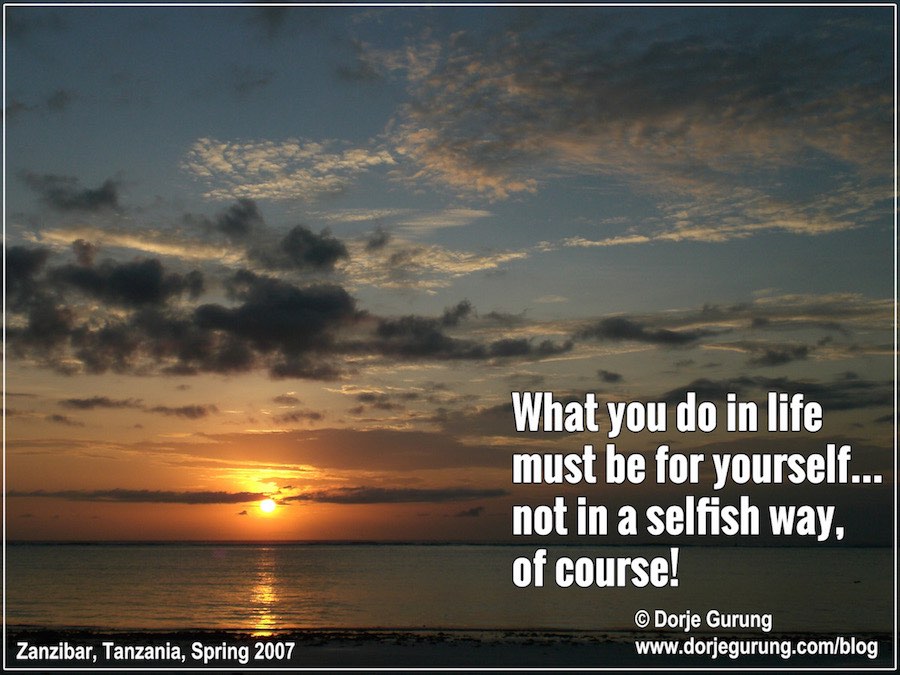
(Little did I know not long after arriving in the country, I would discover how little I was actually able to do — for a number of different reasons — or contribute and would be completely disillusioned with the work I was doing. After about five years of being back, I would quit everything.)
What do you think?

